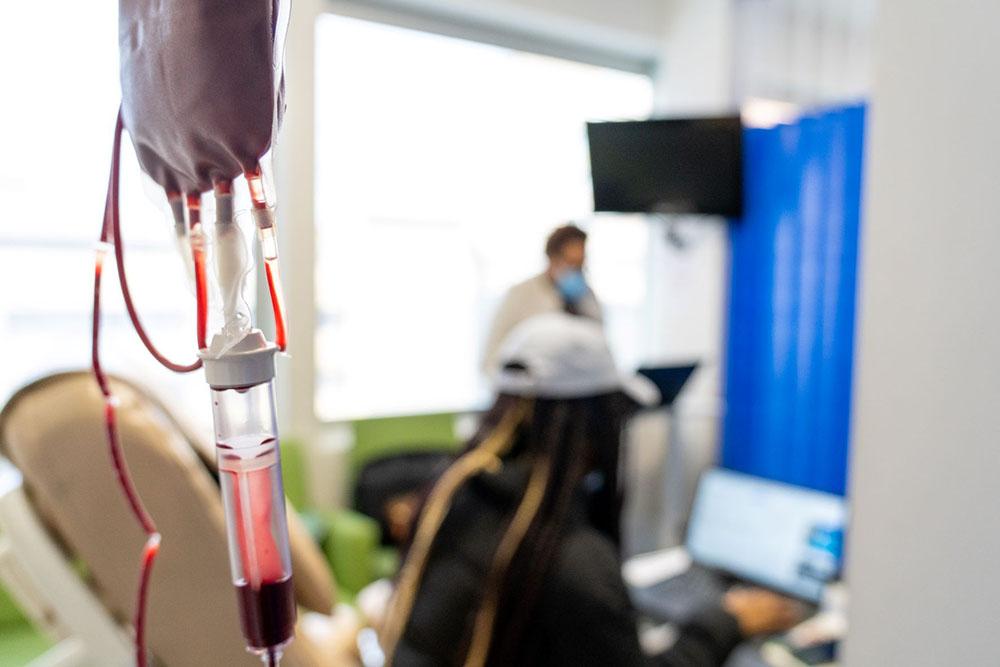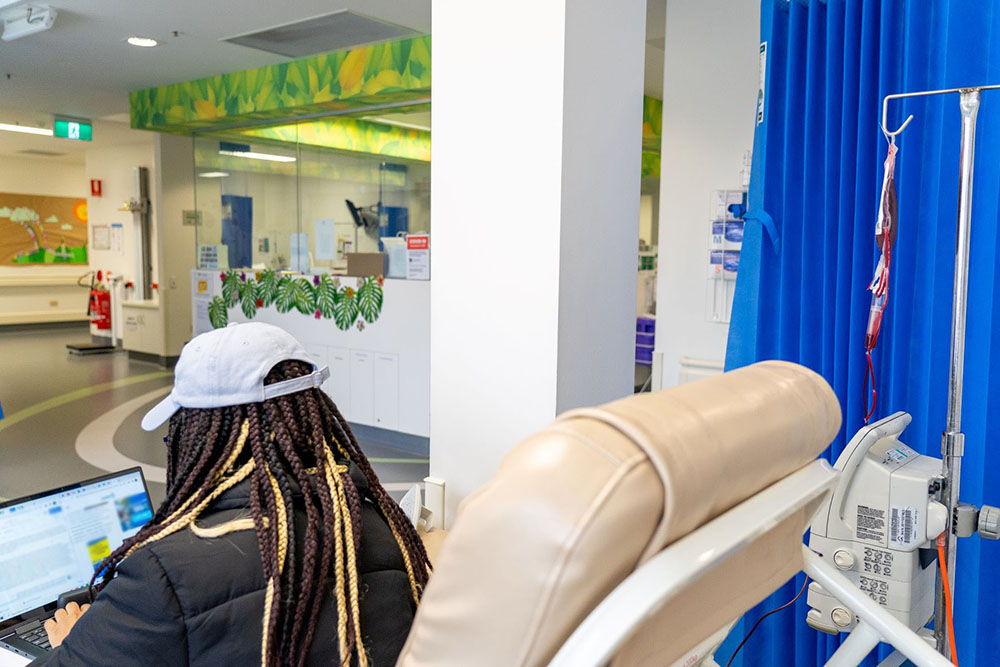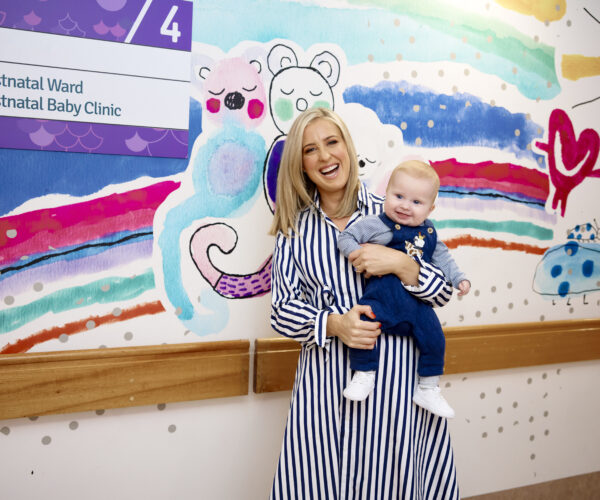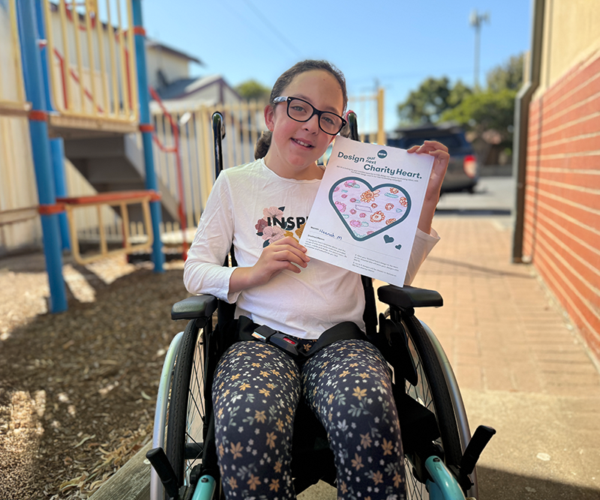The WCH Foundation is providing free transport to patients with sickle cell disease at the Women’s and Children’s Hospital (WCH) to support them in making it to their regular appointments.
The WCH Haematology/Oncology Unit cares for approximately 40 patients per year with sickle cell disease, with patient numbers on the rise. Many patients are from migrant and/or refugee families who are unfamiliar with the Australian medical system and have little social or financial support.

Patient with sickle cell disease receiving their blood transfusion at the WCH.
Patients with sickle cell disease must attend regular appointments to manage the condition. This includes monthly red blood cell transfusions, medication dispensing appointments, and clinical check-ups. Non-attendance has a detrimental impact on a patient’s condition and their health can deteriorate.
Approximately 50% of these patients do not regularly attend their appointments, including their transfusion appointments. The majority of these patients report travel as the key barrier to attendance. A lack of financial means to purchase a bus ticket or petrol, no car availability, or no social support to assist with transport can cause this.
WCH Paediatric Haematology Registrar, Olivia Elieff explains, “The patients who are at greatest risk of non-attendance, the most vulnerable, are also the patients most in need of receiving the transfusion and medication reviews.”

Patient receiving their blood transfusion at the WCH.
We are trialling a transport support service for these families. Taxi transport is provided for patients identified by the clinic as needing support with non-attendance.
Eligible families can be referred for the service by the Haematology/Oncology Unit clinicians who work with these patients.
The initiative, which has so far been trialled with ten patients, is demonstrating an improvement in attendance. Families have also expressed feeling better supported in their care.
If you have sickle cell disease or know someone who is living with the condition, you can find support here.




